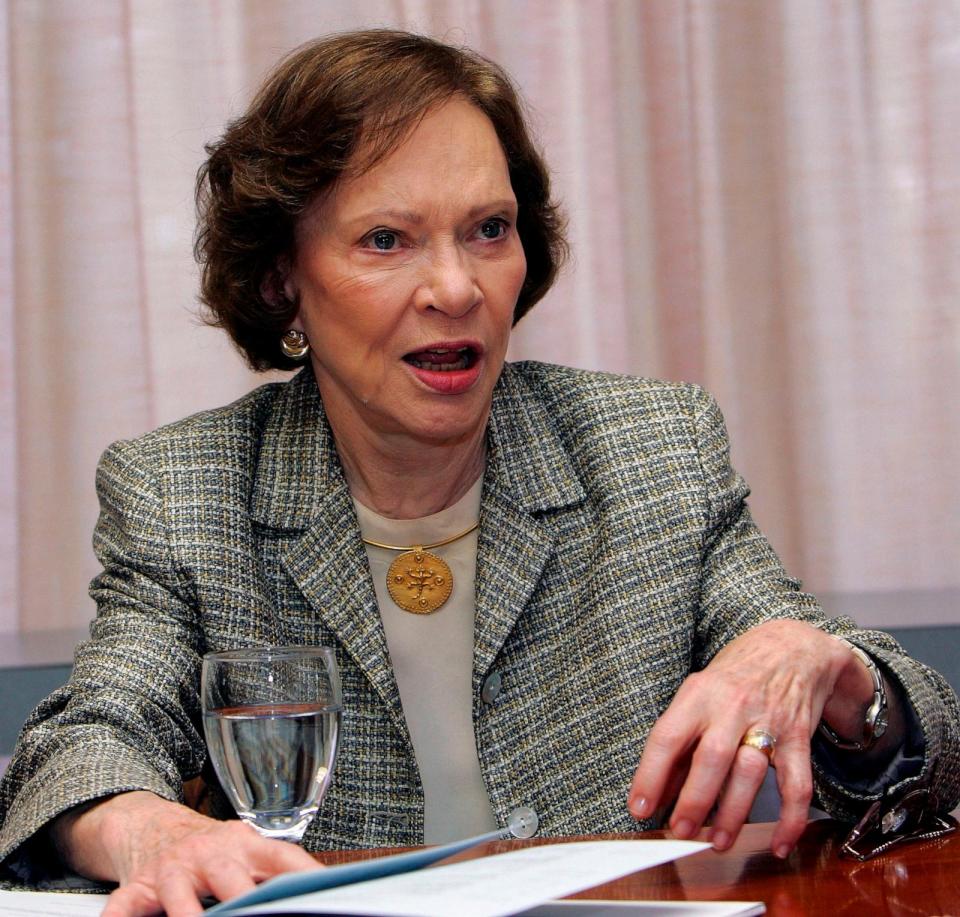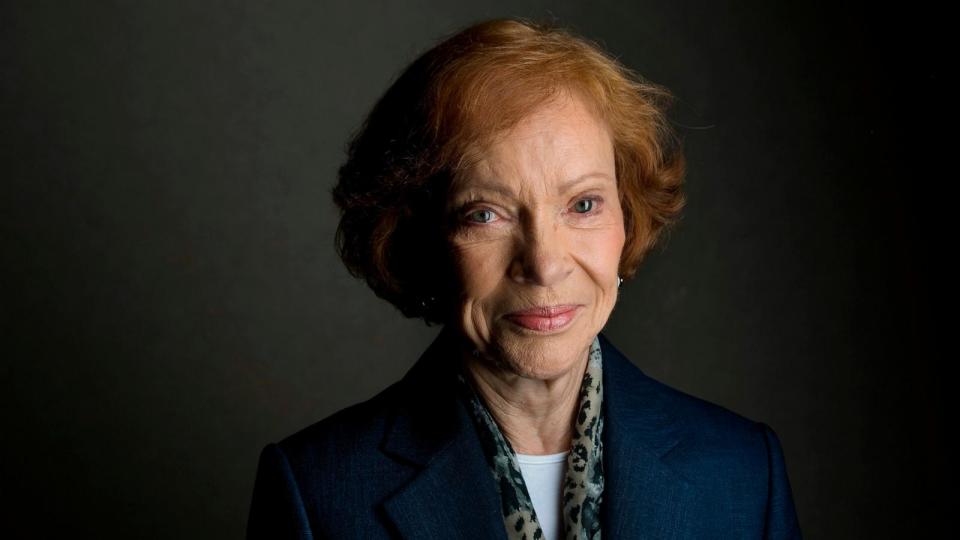Author looks back at former first lady Rosalynn Carter's legacy
White House-based journalist Kate Andersen Brower has chronicled the life of Rosalynn Carter for years along with other modern first ladies during her career.
The author of "First Women: The Grace and Power of America's Modern First Ladies," spoke with ABC News Live's Linsey Davis about the former first lady's legacy both in and out of the White House.
ABC NEWS LIVE: Mrs. Carter, as we know, worked tirelessly as a mental health advocate. Tell us how her work shaped how we talk about mental illness today.
KATE ANDERSEN BROWER: I think that she was one of the first people to ever bring up mental health in such a high-profile way. And actually, when I interviewed her in 2018, she talked about how she wished that there was more funding for mental health and looking at the rash of shootings that have gone on in this country. She was ahead of her time and she was deeply frustrated, actually, that we're still kind of in this place where there is a stigma around mental health. But she did a lot to lessen it.

ABC NEWS LIVE: And you've called Mrs. Carter transformative in her role as first lady, but she was actually influenced by former first ladies, even as a young girl. How so?
BROWER: That's true. She very much admired Eleanor Roosevelt. And I think you see that in her work, especially when she left the White House actually for the Carter Center that she did monitoring elections around the world, eradicating Guinea worm disease and river blindness, working on river blindness. She took the kind of fearless advocacy that was Eleanor Roosevelt's and put it to very good use both in the White House, but then in the decades after her work with the Carter Center.
[It] is really tremendous, and I know that that meant so much to her. And when I interviewed her, she was emotional talking about visiting countries where Guinea worm had killed so many people and the fact that they had nearly eradicated it. That was her life's work.
ABC NEWS LIVE: Since leaving the White House, she and former President Carter are perhaps best known for their humanitarian work with the Carter Center. How does that organization aim to improve life not just for Americans, but for people around the world?
BROWER: Well, Mrs. Carter [was awarded] the Medal of Freedom and President [Bill] Clinton, when he awarded her and President Carter with the medal, he said, "You've done more things for more people in more places than anyone else." So it's a global transformational project that they have to help with election monitoring. She's been to [the] Sudan, North Korea [and] Cuba, trying to advocate for democracy and free and fair elections and then drilling down on these very specific diseases that often come with drinking contaminated water.

The Carters did not grow up with much money, especially Mrs. Carter, and I think she never lost sight of her roots. She at 13 years old, lost her father to cancer, and she said her childhood ended then. And so she had a tough life. And I think she had a tremendous amount of empathy for other people who are struggling. And their deep Christian faith had a lot to do with that.
MORE: 'Extraordinary': Tributes and remembrances for Rosalynn Carter after her death
ABC NEWS LIVE: The Carters, of course, had an undeniable love for one another, even after 77 years of marriage. What do you think was their secret?
BROWER: I think they both evolved together. You know, it wasn't always easy for them. It was funny when I talked to them about [former President] Donald Trump, this was in 2018, and I was in their living room in Plains, [Georgia], in their very modest home, and I asked both of them what they thought of the Trump presidency. And Jimmy Carter gave a very, very well-thought-through guarded response. And Rosalynn kind of elbowed him and said, "Jimmy, you know, you think he's terrible." So she was like she was able to check her husband and keep him in line. I think a lot of married couples can relate to that. She always told it like it is, and I think you've got to respect that.
Author looks back at former first lady Rosalynn Carter's legacy originally appeared on abcnews.go.com

 Yahoo News
Yahoo News 
